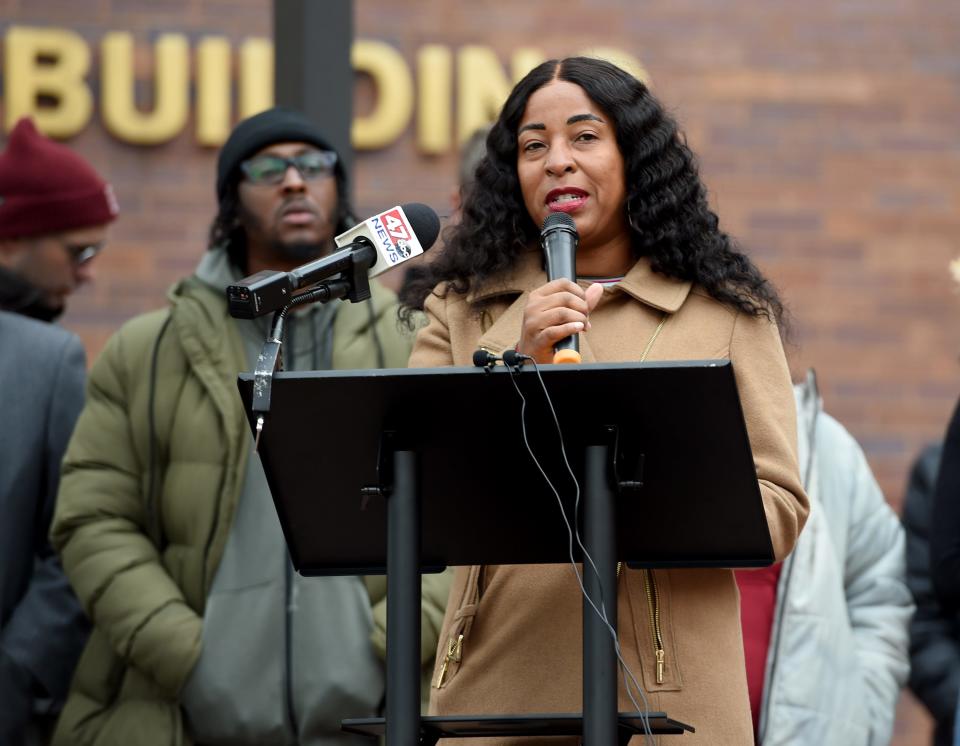City of Salisbury officially passes lynching apology, but does it go far enough?
After continued calls from local activists, and some wrangling on the language itself, the Salisbury City Council officially approved on Monday a resolution apologizing for racial violence in the city's past.
Resolution 3333, which was passed unanimously, said the "Mayor and Council of the City desire to publicly acknowledge the lynchings that occurred in this City and to offer a formal apology to the families and descendants of the victims of the lynchings, including the known descendants of Mr. King, LaTanya Christopher and Cynthia Polk, and the known descendants of Mr. Williams, Jeannie Jones."
What happened in the lynchings in Salisbury's past?
On May 31, 1898, a white mob numbering more than a hundred broke into the county jail in Salisbury and kidnapped an 18-year-old black male, Garfield King, who was accused of murdering a white man. He was taken to the Wicomico County courthouse lawn, hung from a tree, and reportedly his body was shot 50 times.
No one was ever officially identified as being a part of the mob.
During another incident on Dec. 4, 1931, a white mob numbering from several hundred to upwards of a thousand individuals kidnapped a 23-year-old Black male named Matthew Williams from the negro ward at Peninsula General Hospital. Williams was accused of the murder of his employer, a white man named Daniel Elliot.
Some of those later identified as the culprits behind the violence were the former Fire Chief Frederick Grier, Jr, who took the rope for the lynching from the former firehouse building, now the city's headquarters. Also, former Police Chief Nicholas H. Holland helped lead the mob from the hospital to the courthouse.
Following the racial terror lynching of Matthew Williams, an unknown middle-aged black male was found beaten to death, presumably by members of the same white mob.
More on the delays in the resolution Will Salisbury issue apology for lynchings? Here are latest updates from City Council
Wicomico NAACP: 'The apology should have come decades ago'

Monica Brooks, president of the Wicomico County Branch of the National Association for the Advancement of Colored People, noted the resolution was long overdue, but also an opportunity to have a realistic conversation about racial issues that still persist.
"This resolution was never meant to be the end, but the beginning of conversations leading to true diversity, reconciliation, equity and restoration to this community," Brooks said. "The apology should have come decades ago. The fact of the matter is, the city and those running on behalf of the city benefited based on the terror that was spread throughout black communities."
More on racial violence forums Lessons from Salisbury's history of racial turmoil prompt frank discussion at forum
Brooks further contended white supremacists' use of racial terror lynchings caused blacks to live in fear, which curtailed economic opportunities, fairness and equity. The local civil rights leader also took aim at areas in which the city continues "to lag behind in its lack of diversity", with 80% of its workforce being white while 45% of the city's residents are Black.
"Self-examination of policies, hiring practices, availability of resources, access to fair housing and a change in culture is in order," Brooks said.

James Yamakawa, a board member of the Truth and Reconciliation Initiative, said the resolution does not go far enough, as it failed to include how the city was going to develop a conversation on racial issues or strict accountability by city entities for their participation in the crimes.
"Racial terror lynchings were message crimes," Yamakawa said. "As stated by Bryan Stevenson of the Equal Justice Initiative, it was 'lethal violence directed at a person because of their race in an effort to terrorize an entire community.' The apology didn't acknowledge the entire black community that was affected."
Oysters hit major Bay milestone: 'Oyster renaissance' in Chesapeake continues as total in Bay hits major milestone
Salisbury: A city moving forward from past of violence

The journey to Resolution 3333 started well before the Truth, Racial, Unity, Transformation, & Healing Committee unanimously approving the recommendation for the document to the Office of the Mayor and Salisbury City Council.
According to the resolution, city officials believe "racial injustice must be acknowledged and remembered before society can heal from wounds of the past and build mutually respectful relationships across racial and ethnic lines."
"This shows a (successful) process in community involvement since it was every leg of government working together," said Council President D'Shawn Doughty. "I know some groups don't feel it has the full language they feel needs to be said. I hope people read the language and that it strikes some emotional chord. While I believe it's a great city now, our past wasn't always that way, and we had people in power (complicit) in it."
Doughty added Salisbury has taken steps to educate the public about the past, while also increasingly becoming a melting pot.
More on the lynching memorial Long-awaited memorial marker to lynching victims unveiled in downtown Salisbury
This article originally appeared on Salisbury Daily Times: Salisbury passes apology for lynching past, but does it go far enough?
